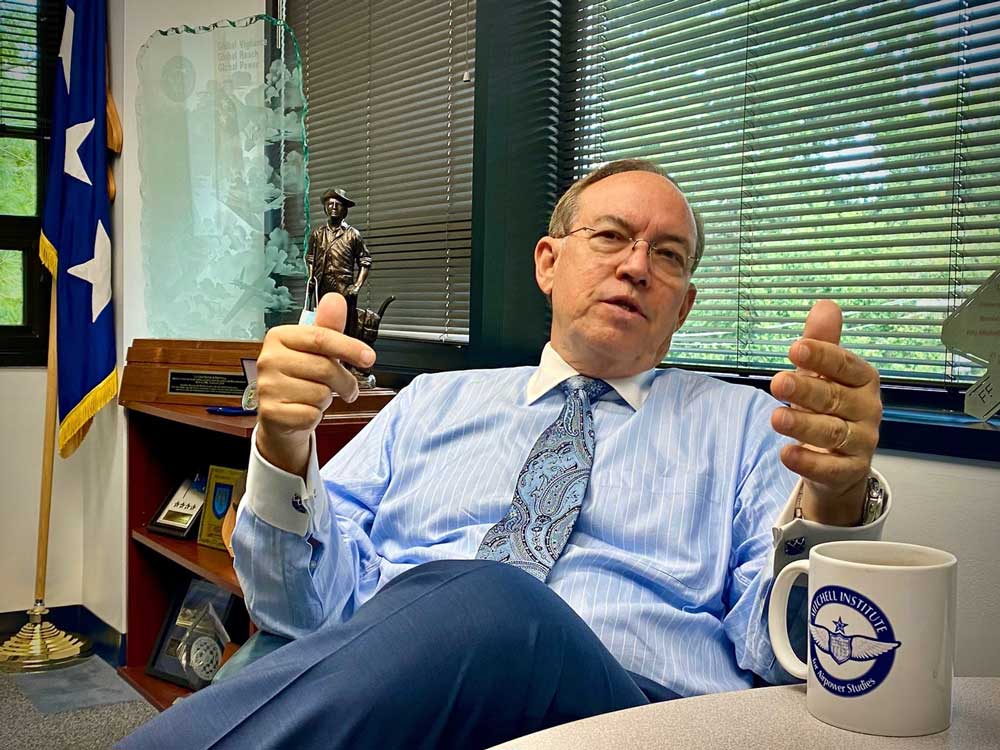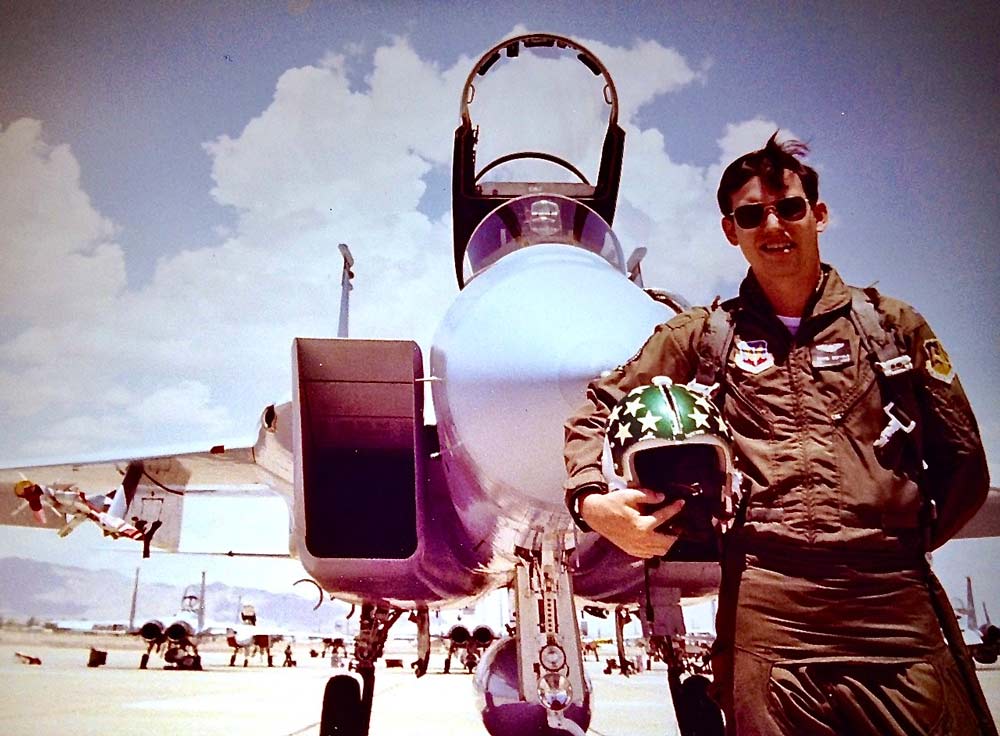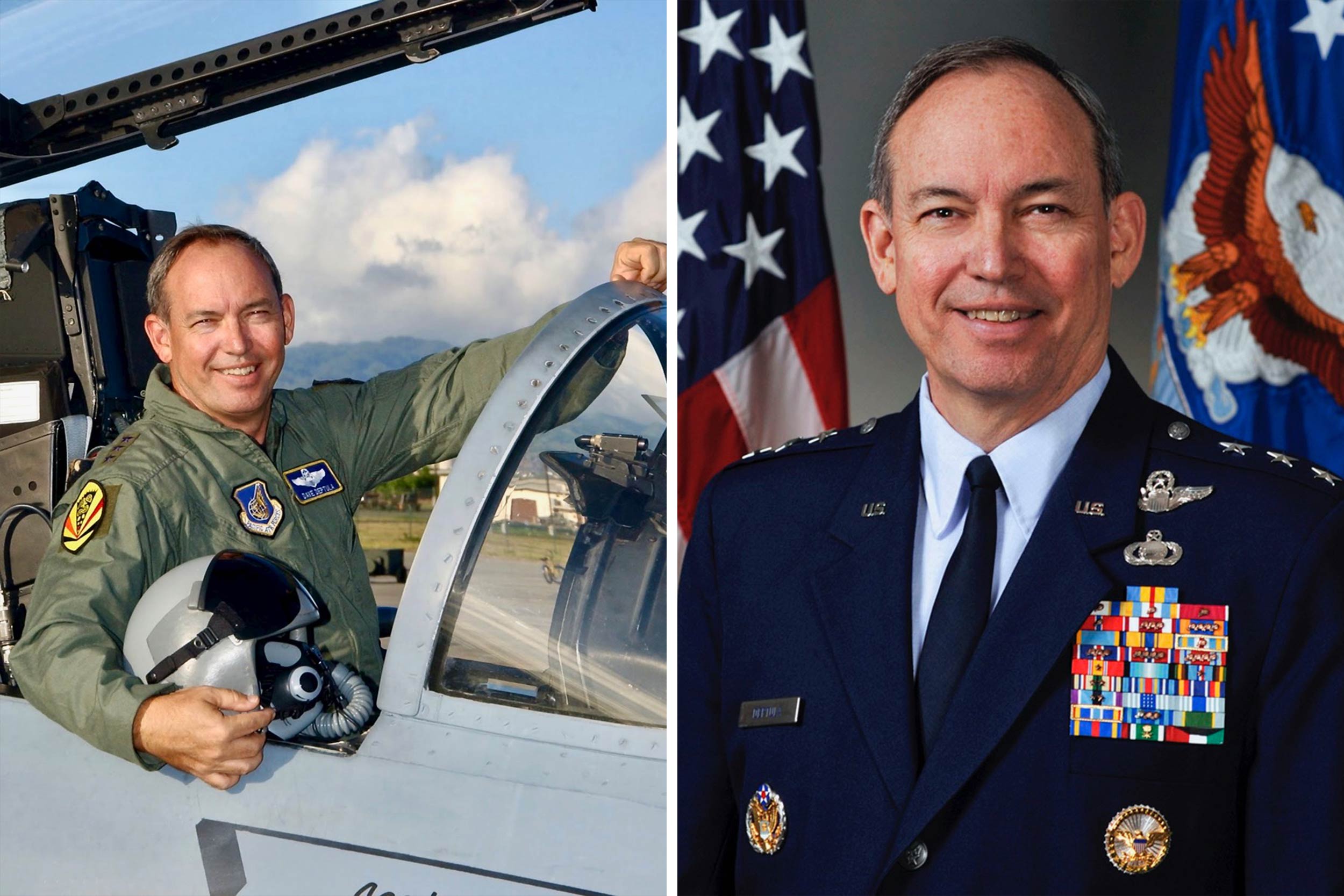Retired U.S. Air Force Lt. Gen. David Deptula, a longtime advocate for military air power, is returning to his alma mater to be honored for his contributions.
Deptula, a double Hoo, is slated to receive the 2024 Air Force ROTC Distinguished Alumni Award at UVA’s Alumni Hall on Friday at 2 p.m.. An Air Force ROTC cadet when he attended the University of Virginia, Deptula graduated in 1974 with a degree in astronomy and then in 1976 with a master’s degree in systems engineering.
In a 34-year career in the Air Force, he influenced the role of the Air Force in the modern era. After he retired from the military, Deptula became the dean of the Mitchell Institute for Aerospace Studies.
“I’m one of those people who believe if you retire, you die,” he said.

Deptula is the dean of the Mitchell Institute for Aerospace Studies, a role he took after retiring from the U.S. Air Force. (Contributed photo)
Deptula said the Mitchell Institute is the only U.S. think tank focused on air and space power. He said the institute is designed to educate people on the virtues of air power; to persuade lawmakers in Washington, D.C., to fund the Air Force and Space Force in the federal budget; and to insist air power is included in policy discussions.
Deptula recently returned from his second trip to Ukraine, where he was advising the Ukraine military on ways to optimize their air power capabilities.
“They grew up under Soviet military doctrine and do not integrate their services like the U.S. does,” Deptula said. “They could benefit from greater integration between their air and ground forces.”
Deptula has spent most of his life working in air power, starting as the sole pilot candidate from his ROTC class to enter flight school. Since then, he has logged more that 3,000 hours flying, 400 of those in combat.
“I ended up the only Air Force officer in history who was fully combat-mission qualified in the F-15 in every rank from lieutenant to lieutenant general,” he said, jokingly adding, “That and four bucks will get you a cup of coffee.”
Aside from flying, Deptula was the author of the white paper “Global Reach: Global Power for the U.S. Air Force” that influenced much of Air Force policy moving into the post-Cold War era.
“That was one of my highlights, being the ghostwriter of that white paper that essentially defined the role of the Air Force in the modern era,” he said.

Deptula at his initial F-15 training at Luke Air Force Base in Phoenix in July 1977. (Contributed photo)
He was a principal attack planner for the Desert Storm coalition air campaign in 1991 and he was the first deputy chief of staff for intelligence, surveillance and reconnaissance for the Air Force, where he focused on policy planning and oversight for Air Force intelligence.
Deptula was serving in the Pentagon during the Sept. 11 terrorist attacks of 2001. He said his aide called and told him to turn on the television in his office and when he did, he saw a plane strike the second tower. He knew it was a terrorist attack.
“The next thoughts that go through my mind are, ‘The Pentagon would make a nice third target, but what am I going to do about it?’” he said. “I got back to my desk, working on a report, and 20 minutes later, the airplane hits the Pentagon. It’s two corridors away from me and I heard a muffled explosion. The building didn’t shake. Then all the alarms came on.”
It wasn’t where young Deptula envisioned himself. As an undergraduate, Deptula majored in astronomy with hopes to be an astronaut.
“I grew up in the 1960s when (President John) Kennedy’s charge was to put a man on the moon, and space exploration and manned space flight were the big things,” he said.
But then he flew a T-38 jet in flight school. “I decided I wanted to fly a fighter, be able to maneuver and control my destiny, not sit on a rocket and have somebody else program my profile,” he said.
Deptula has been guiding his own course for much of his life, using the knowledge he gained at UVA.










